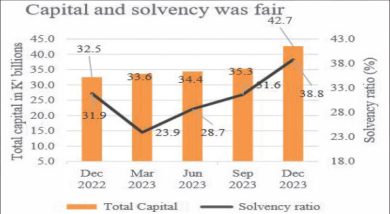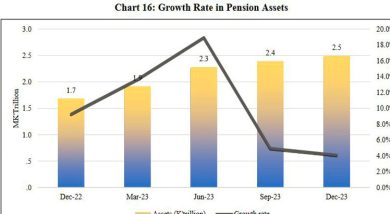Positive change and development
If you want to outperform others, you do not use their strategies. Rather, you develop your own which you see fit, and you will end up the best.
It would be wise for Malawi to learn that if we want to be a rich and developed country like United States of America, China, Britain, or Japan, we must stop acting like their puppet and stop using their strategies and develop our own.
Development strategies may not be universal. It is high time we knew where we are going and where we want to be in the near future. We need to capitalise on our resources even on the smallest and simplest ones, such as water. We must leave no stone unturned. We must not stick to old guns of economic principles and policies, neither to political systems and tactics. It gets us nowhere. We need to embrace positive change so that we remain viable in a society that is continuously changing.
Malawi can achieve a middle income economy by producing as many graduates as possible in order to increase the middle income earners who thus reduce poverty, and create jobs for others.
However, this is one sector where most erroneously comparisons are made. For instance, the minister of education, science and technology recently alluded in parliament that the University of Malawi is heavily subsidised. Such arguments are most often times based on subsidies of other outside universities such as those in the UK and USA.
But have we compared the illiteracy rate, the gross domestic product (GDP) per capita, and the percentage of middle income earners in those countries? In fact, have we looked at alternative comparisons which would equally help arrest unnecessary expenditures like those on internal and external travels in the budget for the president? Have we checked inefficiencies in the Fertiliser and Input Subsidy Programme (Fisp), and have we found the real target and beneficiary in this?
We will always have a problem with development if we keep comparing incomparable things and situations. Let us find strategies which suit our situation. Otherwise, we risk using wrong economic policies and principles, which eventually keep us as a receiving basket.
It is funny that we implement a system, and later turn back to fight against it. Malawians got it right that the fuel Automatic Pricing System (APM), and the floatation of the kwacha will solve some of our economic problems the country was facing, such as shortage of forex. It is however, pathetic to hear a call from government to the business world asking to put the prices down because the kwacha has appreciated. The point is we implemented a system that does not require intervention, and should thus be left alone.
We need change that we can see and appreciate. For a long time, government has not been proactive enough. For instance, during the devaluation and floatation of the kwacha, it would have just raised salaries for civil servants even by a mere 15 percent well knowing prices would skyrocket. Civil servants would not have gone to the streets demanding a 61 percent salary increase. At the same time, with regards to the University of Malawi’s (Unima), if government was indeed watching the market and the rise in food prices, they should have raised the students’ upkeep by say, even 10 percent, students would be in class by today. People would be able to see a considerate government and be able to appreciate the little efforts.
Strategies must, therefore, be developed to achieve set goals in our various sectors of the economy at each point in time. If we do not change the style of using the rule of thumb, we will always be followers in development.
Our colleagues in China, were as poor as we are now. But they had to find their own new strategy to development. They had confidence, hard work, determination and focus. And today, it is among the top five richest countries in the world. Yet Malawi has not learned a lesson, that we can do it as well.
For years, our budget has been 60 percent domestic revenues, 40 percent donor and grants fund. During the 2011/12 budget, the former administration with late Bingu wa Mutharika introduced a zero deficit budget. People mourned due to escalating prices in goods, and subsequent scarcity of forex and fuel. But perhaps he had a vision which he implemented at the wrong time.
However, the fact remains that we need to move towards a zero deficit-budget. Are we going to be beggars forever? Similarly no country will relax its competitiveness in the market just to make Malawi realise its economic goals.





